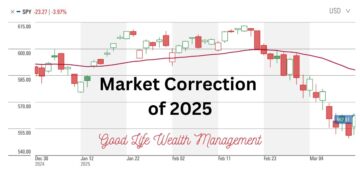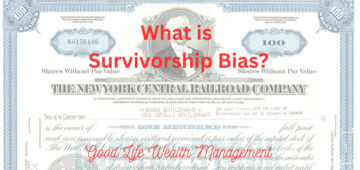This month will likely be called the 2020 Stock Market Crash in the years ahead. Investopedia defines a crash as a double digit drop over a few days as the result of a crisis or catastrophic event. A crash typically occurs after a period of speculation which drives stock prices to above average valuations. Panic is a hallmark of a crash, versus a Bear Market. Certainly, we have met the definition of a crash.
Risk is perceived as danger when it occurs, but only in hindsight do we see another definition of risk: opportunity. If you look at the purchases you made in your 401(k) back in 2008 and 2009, you may be astonished by the gains you made at those low prices!
Your emotional response to a crash may be to ask if you should sell. But then you might miss out on today’s opportunities. Even if you are fully invested today, consider these five actions instead of selling.
Five Opportunities
- Keep buying. Dollar cost average in your 401(k), IRA or other accounts. The shares you buy at a low price could be your largest future gains. If you have not made your IRA contribution for 2019 or 2020, this might be a good time.
- Roth Conversion. Thinking about converting part of your IRA to a Roth? If so, you would now pay 11% less in taxes versus last month. After that, your gains will be tax-free in the Roth.
- Rebalance. Hopefully you started with a defined allocation, like 60/40 or 70/30. If that has subsequently gotten off-target, now may be an opportune moment to make rebalancing trades.
- Replace low yielding bonds. Look at the SEC Yield of your bond funds. The SEC Yield measures the yield to maturity of a fund’s bonds and subtracts the expense ratio. It is the best measure of expected returns for a bond fund. Bonds can work as portfolio ballast: a way to offset the risk of stocks. If that is your objective, stay safe. Unfortunately, the actual contribution of bonds to your portfolio return is terrible, maybe 2%, or even less than 1% if you own short-term treasuries. Instead, what I find attractive after this crash is Preferred Stocks, non-callable CDs (versus Treasuries of the same duration), and Fixed Annuities. If your SEC Yields are unacceptable consider changes, but proceed with great caution. Above all, avoid trading down from a safe bond to a risky bond just for a higher yield.
- Do nothing. Markets go up and down. You have the choice of just ignoring it. Selling on today’s panic is the worst type of market timing, giving into fear. So, take a deep breath and realize that after the crash it is often best to hold.
Work on Your Financial Plan
There’s more to your financial success than just whether the stock market is up or down. Ask yourself the following questions:
- Am I on track for retirement?
- Do I have an Estate Plan?
- Am I prepared for my children’s college education expenses?
- Have I protected my family with a term life insurance policy? Additionally, are there risks to my career, business, health, or family which I need to address?
- Do I have a disability and long-term care plan?
- How am I addressing my charitable goals?
- Are there additional ways to save on taxes?
- Should I refinance my mortgage?
- Am I eligible for a Health Savings Account or Flexible Spending Account?
- Have I calculated the optimal age to begin Social Security for myself and my spouse?
Don’t let investing in the stock market consume all your attention, because it is only one piece of your financial plan!
Think Long Term
Risk is danger and risk is opportunity. Instead of worrying about this month, imagine that it is 2021 or 2022 and the market has recovered. What would you have wished you had done in the 2020 Stock Market Crash?
Ignoring the panic of the day isn’t easy. Thankfully, a good investor doesn’t have to make predictions about the market going up or down. We can’t control that. The key is managing how you respond when the market is at its worst. Finally, if you know you need work on your financial plan or would benefit from professional advice on managing your portfolio, I am here to help.
Past performance is no guarantee of future results. Stock market investing involves risk of loss of principal. Dollar cost averaging does not guarantee a gain.







